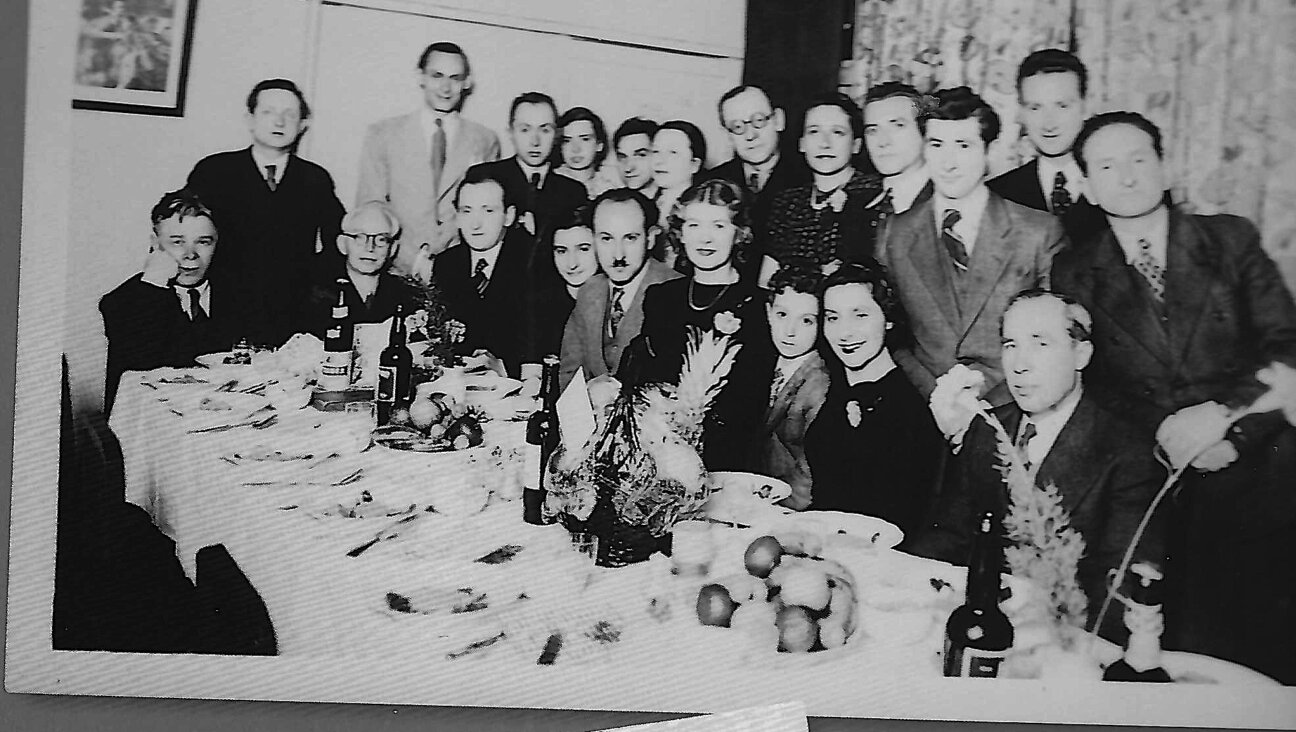The Truth About Einstein’s Boat
Marjorie Wolfe read the same article in The New York Times that I did.
The article, captioned “At relativity, a genius; as a sailor, not so much: Recalling Einstein’s summer of 1939,” was based on an interview with Long Island resident David Rothman, whose father owned a general store in Cutchogue Harbor that Albert Einstein frequented during a summer spent in a cottage overlooking Long Island Sound. Einstein, as is well-known, loved to sail; less well-known — at least to me — was that he was, apparently, a comically bad sailor, repeatedly running himself aground and capsizing. What I also didn’t know was that he affectionately called his “clunky little sailboat,” as it’s described by the author of the Times article, Corey Kilgannon, “Tinef” — which, Kilgannon explains, is “Yiddish for ‘worthless’ or ‘junk.’” And Ms. Wolfe writes to ask: What kind of Yiddish word is tinef? No Yiddish speaker asked by her about it, she says, ever heard of it.
Actually, tinef (stress on the first syllable), deriving from Hebrew tinnuf (stress on the last syllable), is a Yiddish word, though it’s not from Yiddish that Einstein was likely to be familiar with it — and certainly not from the Yiddish of Eastern Europe, which is what we usually mean by Yiddish. Tinef in Eastern-European Yiddish means “filth,” not “junk.” This is how it is defined both by Uriel Weinreich in his “Modern English-Yiddish Yiddish-English Dictionary” and by Nahum Stutchkoff in his thesaurus Der oytser fun der yiddisher shprakh. Alexander Harkavy alone, in his Yiddish-English-Hebrew Dictionary, also gives the meaning of “worthless goods,” but only in the combination — which we shall get to in a moment — of tinef–tinoyfes.
The noun tinnuf is not found in the Bible, although the Hebrew verb le’tannef from which it is formed does occur once there, in the sense of “to dirty,” in the verse in The Song of Songs: “I have put off my coat; how shall I put it on? I have washed my feet; how shall I dirty them [eykhakha atanfem]?” The noun first appears in rabbinic literature, where it means “filth,” “impurity,” or “defilement,” and in a medical context, a discharge from the uterus. It also turns up in the secondary form of tinnofet — and here we get a bit closer to Einstein’s sailboat, since we read in the Mishnah, in the tractate of Bava Batra: “If someone sells someone else fruit, the buyer agrees to accept a twenty-fourth part tinnofet; if figs — ten percent with worms; if a cellar of wine — ten percent that is spoiled.” Tinnofet is thus rotten or worthless fruit, which is but a short step from “junk.”
Einstein’s boat, however, was not call Tinofet (or Tinoyfes, in Eastern-European pronunciation), but rather Tinef. Moreover, Einstein certainly didn’t speak Eastern-European Yiddish and never had much occasion in his life to be exposed to it, neither in Germany nor in America. Could he, then, have picked up tinef in the sense of “junk” from Western-European Yiddish, which though now extinct was still being spoken in parts of Germany in his childhood? Even though he came from a relatively assimilated Jewish family that spoke only proper German, this is theoretically possible, since tinef, as we shall see, certainly meant “junk” in Western Yiddish. But there’s no need to resort to such a hypothesis. Spelled Tinnef, the word also meant junk in colloquial German, and indeed still means that today, as well as drivel or foolishness. As the German-Jewish writer Andreas Nechama puts it in his Jiddisch in Berliner Jargon, the word “describes something of inferior quality, and if you can’t tell it when you see it, it describes your judgment.”
Quite obviously, German borrowed Tinnef from Western-European Yiddish, possibly via Rotwelsch, the German underworld argot in which Yiddish words were common. Moreover, tinnef or tennef also means junk in the Dutch slang of Amsterdam known as Bargoens, which, too, is full of Yiddish words, and must have meant junk in Western Yiddish everywhere.
Even though Albert Einstein had a strong sense of Jewish identity, the name of his sailboat, then, is no indication of Jewish knowledge on his part, or even of an association with other Jews. It came from the German-speaking environment he grew up in. It’s not like the name of Freud’s dog.
“Freud’s dog?” you ask. Well, yes. Freud had a dog named Yofi — or Jofi, as he would have spelled it in German, except that you won’t find Jofi in a good German dictionary the way you’ll find Tinnef. Yofi does, however, mean “beauty” in Hebrew (in Israel today it’s a ubiquitous word meaning “great” or “terrific”), and there’s no doubt that Freud, who had a far better Hebrew and Jewish education as a boy than he generally cared to admit in later life, got it from there. Yofi was thus a Jewish dog. Tinef was not a Jewish sailboat, even if Einstein is said to have sailed it like a Jewish sailor.

I hope you appreciated this article. Before you go, I’d like to ask you to please support the Forward’s award-winning journalism this Passover.
In this age of misinformation, our work is needed like never before. We report on the news that matters most to American Jews, driven by truth, not ideology.
At a time when newsrooms are closing or cutting back, the Forward has removed its paywall. That means for the first time in our 126-year history, Forward journalism is free to everyone, everywhere. With an ongoing war, rising antisemitism, and a flood of disinformation that may affect the upcoming election, we believe that free and open access to Jewish journalism is imperative.
Readers like you make it all possible. Right now, we’re in the middle of our Passover Pledge Drive and we need 500 people to step up and make a gift to sustain our trustworthy, independent journalism.
Make a gift of any size and become a Forward member today. You’ll support our mission to tell the American Jewish story fully and fairly.
— Rachel Fishman Feddersen, Publisher and CEO
Join our mission to tell the Jewish story fully and fairly.
Our Goal: 500 gifts during our Passover Pledge Drive!























